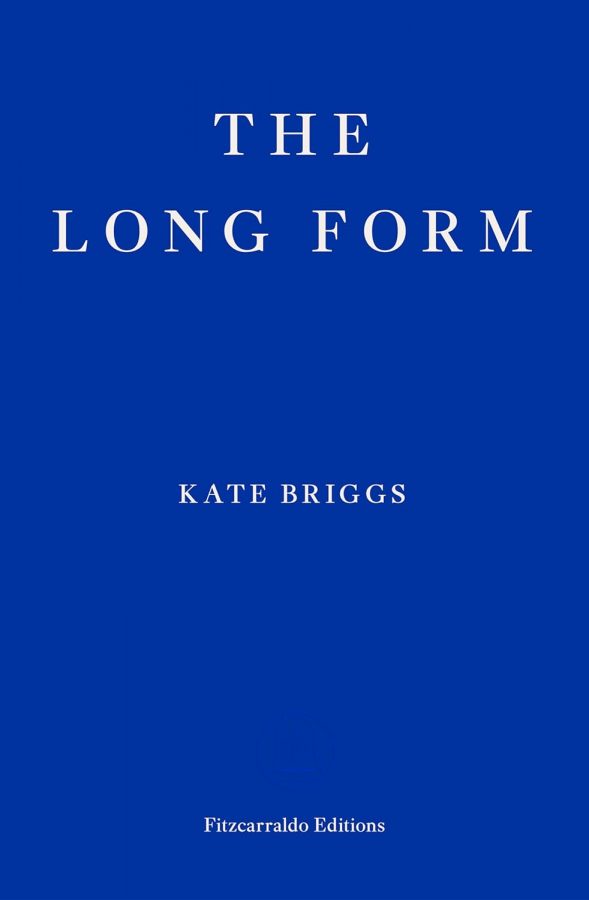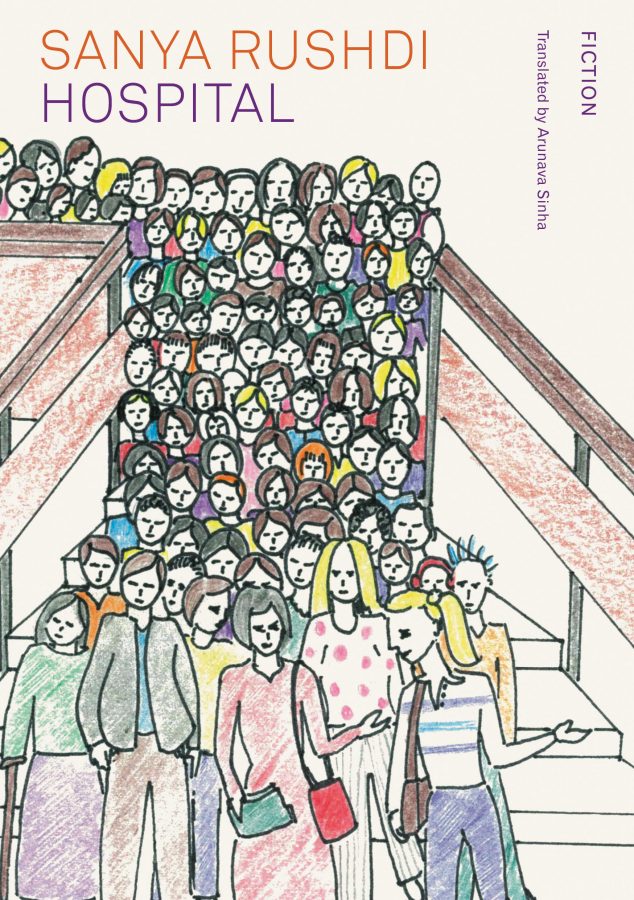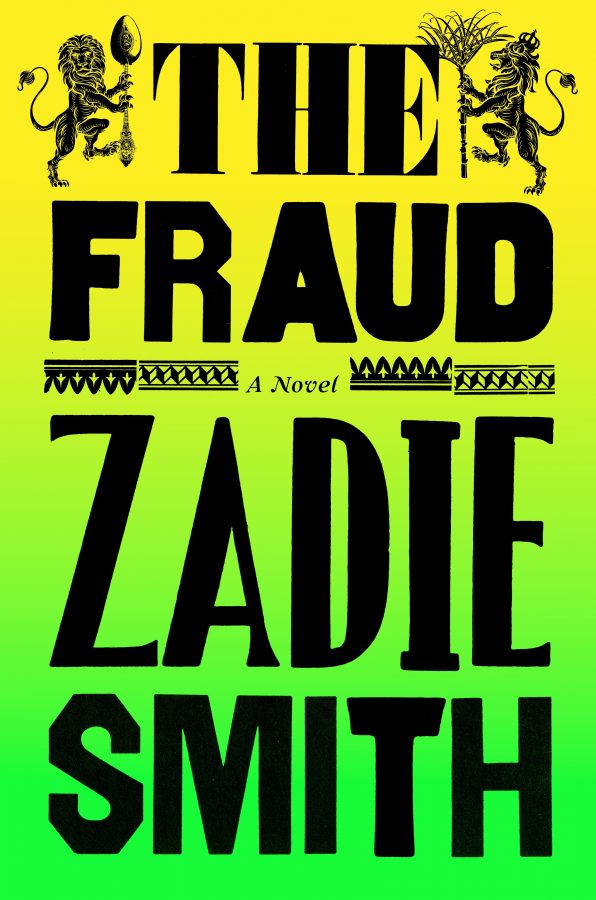Late in Wolf Hall, the first novel in Hilary Mantel’s Thomas Cromwell trilogy, a weary Cromwell briefly contemplates dying at his desk as the poet Petrarch did. He recalls the poet’s words:
between one dip of the pen and the next, the time passes: and I hurry, I drive myself, and I speed towards death. We are always dying – I while I write, you while you read, and others while they listen or block their ears; they are all dying.
At the close of the Mirror and the Light, Cromwell dies, if not at his desk, then at least not very far from it. Despite having fallen from King Henry’s favour, his days in the Tower of London are still spent in the king’s service, writing a detailed account of the negations he conducted for the hand of Anne of Cleaves. Having made the marriage, Cromwell’s memory and eye for detail are needed to unmake it, and before the last words of his account have dried on the page, Parliament will have drafted and debated the bill of attainder for his execution. Cromwell is condemned to die not by a trial of his peers but by the pen; a tactic that he himself has employed more than once. And when there are no more words left to write – no more letters, accounts, transcripts, or pleas – he is sent to the block.
At the end of this long narrative, Cromwell finally realises what the reader has always known: that he has been speeding towards his death all this while. He may have been instrumental in bringing about one of the most significant events in English history, the schism from the Roman Catholic Church, but at a personal level this revolution has led him round in a circle to re-enact the downfalls of both his mentor Cardinal Wolsey and his enemy Sir Thomas More. Despite the upheavals, rebellions, and executions of the past decade, despite all his work and reforms, nothing essential seems to have changed at the moment of Cromwell’s execution. The king is still the king, killing and marrying as he likes. Heretics are still burned, now for adhering too strictly to Catholic dogma as well as for straying too far from it. The world still moves at the command of shadowy men, bent over their quills and inkpots. And Cromwell is still Cromwell, right up until the final blow.
Diarmaid MacCulloch’s recent biography Thomas Cromwell: A Life notes that Cromwell seems to appear almost out of nowhere, suddenly rising from obscure origins. In Shakespeare’s Henry VIII Cromwell enters first in Act III as a servant and interlocutor to Wolsey, and then reappears suddenly elevated without explanation in Act V, striding onto the stage as secretary to the king and master of the rolls. His trajectory is similar in Mantel’s trilogy. Cromwell arrives on the page fully formed, if not quite a man for all seasons then at least the perfect man for his season, until it finally sweeps him away.
His essential character is established early in Wolf Hall: observant, loyal, adaptable, modestly compassionate, grimly humorous, with a disdain for unnecessary cruelties and a strong stomach for any necessary ones. Across the trilogy, and particularly in the Mirror and the Light, there are movements back to Cromwell’s beginnings as the son of a Putney blacksmith and his formative experiences in Italy and Antwerp, though there is little difference between the past Cromwell and the one who occupies the present action of the novels. He is always willing to learn, to calculate a risk and to probe the limits of established order and authority, unwilling to allow a slight or insult to go unanswered. The chief pleasure of the trilogy is seeing the world through Cromwell’s eyes, following the train of his consistent and methodical thoughts. Seemingly mundane gestures and dialogue are carefully weighed for meaning. Any event, meeting or chance conversation may lead to extended reflection – the slow pace of these novels serves to underscore the Cromwell’s quickness. Consider, for example, how an inkblot on a writ of execution can transport him back, momentarily to his childhood:
Henry’s arm, his jewelled and heavy sleeve, trails across the table; an ink blot forms by Weston’s name, and blooms there; it unfolds, a solitary black flower, and forty years glide into ink-dark. His face does not change, he can trust it for that, but he is a child now, and standing, arms folded, feet planted apart in the posture of a man.
Or his wry acknowledgement of the occasional tiresomeness of his king’s antics, signalled by an understated repetition:
When Katherine was queen she was repeatedly ambushed by Robin Hood, or Arcadian shepherds. When they throw off their disguise, lo and behold! It was the king and Charles Brandon. Charles Brandon and the king.
Even moments of high drama and conflict are summarised in cool, quiet prose. Take the moment of Cromwell’s arrest:
The councillors fall on him. Like pack animals they yelp and snarl, grunt and flail. Fitzwilliam is trying to pull his garter badge from his coat. He bats him away, gives Norfolk a shove that knocks him back into the table. But Fitzwilliam comes back. They tug, kick, haul.
A paragraph or so later and Cromwell is already calmly absorbing his plight:
There is a boat waiting for him. It has been organised so neatly you would have thought he had done it himself. A two-minute brawl, he thinks, but they must have reckoned on that. Perhaps somebody gets a fist in his face – but there are so many against one. They know the end of it all. They dust themselves off. They bundle me out.
Earlier in the novel, in happier times, Jane Seymour asks that he pretend to be surprised by the king’s latest costume. To which her servant responds, ‘But surely Lord Cromwell can never be surprised?’ At one level the statement appears to be ironic, given the fate that Cromwell has in store for him. But at another, it is quite true. Cromwell has his share of misapprehensions, and there are plenty of events that he cannot anticipate. But no betrayal, loss, reversal, or inhumanity, whether visited upon others or on himself, seems to truly surprise him. The circular nature of the trilogy, its repeated mirroring of scenes and images, conveys the sense that Cromwell has seen it all before and, until his last moment, likely will again. Aside from one brief encounter in the Mirror and the Light, which seems to genuinely shake him, it is remarkable how little his voice and perspective changes across this trilogy. Readers who have stuck with Cromwell through Wolf Hall and Bring Up the Bodies, will probably not resent Mantel taking almost 800 pages in the Mirror and the Light to send him off in style. He is dangerously good company.
Hilary Mantel’s earlier writing demonstrates an abiding preoccupation with the pull of the past and the struggle to break free from it. Her novels often feature characters and families who are forced to confront buried histories and wrestle with their ghosts, both literal and figurative. Although it was not published until 1992, long after she had established her reputation as a literary author, Mantel’s first novel was also a work of historical fiction, and in some respects serves as a prototype for the later Cromwell trilogy.
A Place of Greater Safety takes the French Revolution as its subject and follows three of its key figures – Georges-Jacques Danton, Maximilien Robespierre and Camille Desmoulins – from their boyhoods until the execution of Danton and Desmoulins in 1794. Like the Cromwell trilogy, A Place of Greater Safety explores the personalities that shape a period of sweeping upheaval, focusing on people who will ultimately be consumed by events that they help to set in motion. Mantel’s relatively sympathetic portrayal of Robespierre in his conflict with Danton prefigures her revisionist approach to Cromwell and his clash with Sir Thomas More in Wolf Hall. And, of course, it all ends on a scaffold. But it feels like a very different kind of work, one that is interested in external dialogue and action, that delights in what is being said more than what is being thought. A Place of Greater Safety is sprawling and highly ambitious, covering three decades and moving rapidly between the perspectives of its key personalities and numerous other characters as revolution and terror unfold. It is full of abrupt shifts, in scene and point of view, and is an altogether wilder and bloodier affair; some readers may prefer it. But while it succeeds in capturing the chaos of the times it cannot quite make sense of them. Characters align, clash, declaim on their values and dramatically fail, but the significance of these movements is often unclear.
Mantel’s approach to historical fiction works better once she settles on a singular focus. Thomas Cromwell’s perspective and trajectory provides Mantel a lens with which to more consistently examine themes that she had begun to explore in a Place of Greater Safety – particularly the desire to break free of past order and cultural tradition, the extent to which this is possible, and the personal and political consequences of the attempt to do so.
In Wolf Hall, the clash between past and present is framed in its starkest terms. The first novel of the trilogy sees Cromwell on the rise, and his ascent is both invigorating and seductive. We follow him from his opening position as servant and lawyer to Cardinal Wolsey, ironically impressing the king with his loyal and capable service despite the cardinal’s fall from royal favour. After Wolsey’s death, Cromwell becomes the king’s secretary and most essential tool in his Great Matter – the annulment of his marriage to Katherine of Aragorn so that he may take Anne Boleyn as queen in her place. It is easy, perhaps too easy, in this first novel to sympathise with Cromwell, who is thrust into precarity by the sudden decline of his patron and must scheme and manoeuvre to secure his position. We also follow him through the critical losses – his wife and daughters to sweating sickness, Thomas Wolsey to the King – that will haunt him in later novels. As reviewers at the time of publication noted Cromwell cuts an appealingly contemporary figure in this novel – pragmatic, upwardly mobile, uncompromisingly meritocratic, he appears as a thoroughly modern man in an early modern world. In a confrontation with the Earl of Northumberland, Cromwell wonders how he might convince him that the nature of power is changing. The world is no longer run
… from the castle walls, but from counting houses, not be the call of the bugle, but by the click of the abacus, not by the grate and click of the mechanism of the gun but by the scrape of the pen on the page of the promissory note that pays for the gun and the gunsmith and the powder and shot.
Cromwell proves himself valuable precisely because he can envision a different kind of world. He engineers a direct and radical solution to the king’s Great Matter – breaking with Rome and having Henry declare himself the head of the Church, bringing the Reformation to England. This step towards modernity comes at a cost: for Queen Katherine and the Princess Mary, who are pushed aside, and for strict adherents of the old political and religious order like Sir Thomas More and Bishop Fisher, whose heads must roll.
Cromwell’s conflict with More, the lawyer and scholar, former teacher to the King, and Wolsey’s successor as Lord Chancellor, comes to dominate the latter half of Wolf Hall and continues to cast a shadow over the rest of the trilogy. Cromwell is both appalled and fascinated by More’s certainty in the rightness of his position, and through Cromwell’s eyes More’s famous refusal to swear an oath recognising King Henry as head of the Church is presented as a dangerous, self-satisfied obstinacy, the same unwillingness to tolerate change or deviation that led the great humanist to happily burn heretics to death at the stake:
He never sees More – a star in another firmament, who acknowledges him with a grim nod – without wanting to ask him, what’s wrong with you? Or what’s wrong with me? Why does everything you know, and everything you’ve learned, confirm you in what you believed before? Whereas in my case, what I grew up with, and what I thought I believed, is chipped away a little and a little, a fragment then a piece and then a piece more.
Near the end, we learn that Cromwell and More had met in the past, when More was a young student and Cromwell was a serving boy in his lodging house. Cromwell recalls once asking More what was in a book he had been reading and being waved off with the weary, brusque response of ‘words, words’. This seemingly insignificant encounter perhaps encapsulates the difference between the two men. Cromwell is curious about the world beyond his established purview, but More is dismissive, confident in the boundaries that separate them and certain that the words in his book are not meant for a servant. This reflects their difference in later life – More is a prodigious suppresser of texts, whereas Cromwell, who secretly owns a copy of William Tyndale’s banned English translation of the Bible, is more liberal. More seeks to confine written words to readers of a particular class and station, where Cromwell is excited by the potential of their transformative power. In the end, he and the lawyer Richard Riche play on More’s scholarly pedantry to secure his conviction, tricking him, via hypothetical legal questions, into making a statement that can, just barely, be interpreted as incriminating. Words, words. Later, after More is executed and his head spiked on London Bridge, Cromwell takes stock of his former adversary.
He thinks, I remembered you, Thomas More, but you didn’t remember me. You never even saw me coming.
Later, in Bring up the Bodies, Cromwell will recall his father Walter saying:
‘My boy Thomas, give him a dirty look and he’ll gouge your eye out. Trip him, and he’ll cut off your leg.’
How long is Cromwell’s memory? Just because he seems like a modern man, does that make him a good one? It is easy to enjoy his ascent as an underdog, but he ends Wolf Hall in a position of power and the grim satisfaction that he takes at the demise of his adversary is unsettling. Many people have yet to see Thomas Cromwell coming.
The second entry in Mantel’s trilogy, Bring up the Bodies, is the shortest of the three and the most focused, covering only period between the Winter of 1535 and the Spring of 1536. Where the titles of the other novels are poetic and allusive (with Wolf Hall referring not only the ancestral home of the Seymour family but also the tendency of ‘man to act as wolf to man’, and the Mirror and the Light reflecting on the deceptive, often illusionary nature of power), Bring up the Bodies is blunt and direct. The narrative focuses on arguably the most famous event in the reign of Henry VIII, the downfall of Anne Boleyn, and the title makes it clear that this will be butcher’s work.
In Wolf Hall Cromwell and Anne had been aligned against England’s old order:
There is a world beyond this black world. There is a world of the possible. A world where Anne can be queen is a world where Cromwell can be Cromwell.
But in Bring Up the Bodies, she has become a liability. She has turned on Cromwell, and both she and her family believe that he is in their debt for his elevation, rather than being grateful to him for theirs. As aristocratic elites they insist, dangerously, on thinking of Cromwell as a client, rather than as an equal and an ally. ‘Those who are made can be unmade,’ Anne warns Cromwell at one point. Soon Cromwell is once again tasked with unmaking the royal marriage and brings charges of adultery against the queen. The cool, meticulous ruthlessness with which Cromwell moves against her and the courtiers that he identifies as her lovers (including, incredibly, her brother George) has a different flavour to his plotting and manoeuvring in Wolf Hall. As a commoner whose great patron had fallen from favour, the odds were stacked against him in the former novel; the struggle was to survive and flourish. In the second novel of the trilogy he is wielding the influence of his high office against adversaries who are simply no match for him.
The order goes to the Tower, ‘Bring up the bodies.’ Deliver, that is, the accused men, by name Weston, Brereton, Smeaton and Norris, to Westminster Hall for trial.
They are bodies even before their execution; their fate is sealed. Cromwell does not change in Bring Up the Bodies exactly, he is as thoughtful, sensitive, and attentive to nuance as ever. He is not corrupted by power, rather he simply wields it with merciless efficiency, in a manner that is entirely in keeping with his established character, testing the reader’s sympathetic alignment with his voice and perspective. He does not exactly set out to see Anne beheaded, but once he identifies the advantage in her replacement with the more placid Jane and an alliance with the Seymour family, he is unfaltering in his pursuit of her. The four courtiers that he has charged with treason were all troublemakers of various kinds and their removal also creates opportunity. The fifth man accused and executed, the musician Mark Smeaton, is acceptable collateral damage. Everything is entirely consistent with Cromwell’s clear-headed pragmatism, his modern approach, but also with his appetite for personal vengeance, subtly established in Wolf Hall. We learn in Bring Up the Bodies that the four soon to be dead courtiers had staged a performance that brutally satirised Cardinal Wolsey shortly after his death, an act that Cromwell had never forgotten.
He needs guilty men. So he has found men who are guilty. Though perhaps not guilty as charged.
At the end, Cromwell achieves his goal of a more peaceful England, but it is ‘the peace of the hen coop when the fox has run home.’ His rivals are either dead, bloodied, exiled, or subdued. He is firmly in the king’s favour and his wealth and rank have grown. But as he put it in Wolf Hall ‘fortune is inconstant, fickle and mutable.’ What is made can be unmade.
This brings us back to the Mirror and the Light, which is difficult to discuss in isolation, given that so many of its scenes and passages recall moments from the previous novels. It is an expansive narrative and Cromwell spends much of it at the summit of his power and influence, without obvious rivals. It is long not just because a lot happens but because Cromwell has more space and security than before to think and look back, to reflect on the events and forces that have made him. Ghosts haunt its pages – Cromwell may have had them erased from religious doctrine, but he cannot stop seeing them. His wife, Liz, and their daughters, his father Walter, Anne and her alleged lovers that he sent to the headsman, Cardinal Wolsey, Sir Thomas More. They start to crowd out the living. When, near the end, he is suddenly elevated to an earldom, he thinks ‘those I want to tell are dead… I want to tell Wolsey and get his blessing. I want to tell Walter, and see his face.’ He is also haunted by the weight of his past actions, by the unforeseen consequences of his various kindnesses and cruelties. The actions that made him in Wolf Hall and Bring Up the Bodies are the root of his unmaking in the Mirror and the Light.
The relationship between the reader and Cromwell shifts uncomfortably in this third novel. In Wolf Hall Cromwell was a few steps ahead of the other characters and the reader themselves, making it possible to delight in his resourcefulness. Bring Up the Bodies, with its slower pace and stronger focus, allows the reader to catch up; we follow him, clear-eyed, through his entrapment of the queen. In the Mirror and the Light, we are finally positioned just a step or two ahead, able to see what is coming when he cannot. He is still observant and thoughtful, but Mantel skilfully directs the reader’s attention to the small details that he is now starting to overlook, the tones and inflections that he is failing to explore. When he works to reconcile the king with his daughter Mary, he acknowledges but refuses to seriously consider the danger that his sympathy for the princess could be seen as a signal of an ambition to marry her and enter the line of succession. While negotiating with merchants on behalf of the king, he casually accepts the gift of a bolt of cloth to sweeten the deal and misinterprets a warning from his protégé Thomas Wriothesley to ‘be careful, sir,’ as referring to the quality of the offering rather than the danger of so openly enriching himself. When arranging the king’s match with Anne of Cleaves he fails to heed Archbishop Thomas Cranmer’s concern that Henry may be unhappy with her as a bride. Though he appears only to rise higher and higher, we are made painfully aware of the extent to which he is slipping, as his reputation leaves him vulnerable and isolated.
In Bring up the Bodies he believes people ‘…who have not met him dislike him, but when they have met him, only some of them do.’ This may well be true, but by the Mirror and the Light he has become known to many who have not met him, and stories of his ruthlessness have taken on a life of their own. This hits home in a scene in the middle of the novel where Cromwell encounters Thomas Wolsey’s illegitimate daughter and learns that she believes he had betrayed her father to the king. This is the only passage in the novel, perhaps the whole trilogy, where the typically grounded and self-assured Cromwell seems genuinely shaken. He is faced with the spectre of the other Cromwell in this moment, the one seen by much of England and Europe: the climber who defies the natural order of the old world, the Machiavelli who would step over any corpse for his own advancement. It is the Cromwell of Maxwell Anderson’s Anne of a Thousand Days and Robert Bolt’s A Man For All Seasons that emerges, the Cromwell who will be remembered.
Without the love of the people or family estates and hereditary titles, Cromwell’s position is entirely dependent on his relationship with the King. In Bring Up the Bodies he reflects:
How many men can say, as I must, ‘I am a man whose only friend is the King of England’? I have everything, you would think. And yet take Henry away, and I have nothing.
In the Mirror and the Light, Cromwell makes the dangerous mistake of turning his back on the king, both literally and metaphorically. Throughout the trilogy, Mantel largely keeps Henry in the shadows. His scenes in the first two novels are brief and infrequent, but his presence is always felt. Most conversations in the novel inevitably cycle back to the subject of the king: his desires, whims, and moods. We see more of him in the Mirror and the Light, and Mantel presents him as a mixture of contradictions. He veers between solemnity and childish enthusiasm, humour and sudden rage, penitence and absolute selfishness, distractibility and sudden, calculating shrewdness. In Bring the Bodies, Cromwell contemplates writing a book about his king. In the Mirror and the Light he starts to actually work on his ‘Book of Henry’:
You cannot anticipate or fully know the king. Thomas More did not grasp this. This is why he is dead and I am alive.
He records his observations and notes the mistakes of others. It is a book on governance in a sense – like the ‘mirrors for princes’ that were popular at that time in Europe – not of a nation but of its monarch. But later, when he returns to this text in his hour of need ‘all he sees is how much white space there is, blank pages left uninscribed’.
There is no real guide to Henry, no rules or patterns that can be put into words. In Wolf Hall Cromwell notes that Wolsey had erred in moving from thinking what the king might do to what he might on the king’s behalf and then, inevitably, to what he might do in the king’s place. But In the Mirror and the Light, Cromwell is so focused on forging an alliance with German Protestants and remaking the political landscape of Europe that he oversteps in precisely the same way, seeking to realise his own vision for England through Henry’s unhappy union with Anne of Cleaves. He also repeats the mistake of his old adversary, Sir Thomas More, by refusing immediately to dissolve the marriage, putting principle ahead of expediency, if only for a moment.
In the end, the drive towards modernisation that Cromwell represents in this trilogy is irreconcilable with the absolute monarch that he serves. To a ruler like Henry there can never be any greater good than his own good; his happiness and England’s happiness are inseparable. Cromwell rises in the king’s service because he is progressive and forward-thinking, but these qualities inexorably lead him from the idea of serving his monarch to the idea of serving his state. When the king starts to repeatedly joke about being ‘ruled’ by Cromwell, the danger is palpable. A king, at this point in history, is not an instrument of the state or even simply its head, he is the state itself.
If he is ugly, so is the commonwealth. If the King is sick, so is his realm.
Cromwell disdains the medieval conceit of the wheel, where what rises must inevitably fall, but when his time comes, the strategies that he has used to bring down his adversaries in the first two books are turned against him in the third. The king’s new favourite, the Catholic-sympathising Bishop of Winchester, Stephen Gardiner, moves against Cromwell with the same efficiency that Cromwell had brought to bear against Thomas More, Anne Boleyn and all the others. He is motivated, as Cromwell had once been, by the desire to strength his political position while at the same time avenging old slights and grudges. In Bring Up the Bodies Cromwell had counselled speed and ruthlessness in the pursuit of an enemy:
Before you even glance in his direction, you should have his name on a warrant, the ports blocked, his wife and friends bought, his heir under your protection, his money in your strong room and his dog running to your whistle. Before he wakes in the morning, you should have the axe in your hand.
Now he watches as Gardiner swiftly builds a case against him, finding evidence of heresy in innocuous letters, corruption in simple acts of kindness, treasonous intent in his jests:
Treason can be construed from any scrap of paper, if the will is there. A syllable will do. The power is in the hands of the reader, not the writer.
Words, words. Across these three novels, Cromwell has been presented as fascinated by writing and literacy, by the power of the written word transmit thoughts from one mind to another and make the temporal permanent. To bind, break and kill at a distance. In Wolf Hall, he likens written laws to spells, effecting change through language alone. In the Mirror and the Light, he marvels at how, when the king signs writs of execution, ‘Each stroke of the pen will translate into a stroke of the axe.’ At the conclusion of Bring Up the Bodies he realises, poignantly, that soon all that all that will be left of him are words on the page:
I will leave behind me a great mountain of paper and those who come after me… they will sift through what remains and remark: here is an old deed, an old draft, an old letter from Thomas Cromwell’s time; they will turn the page over and write on me.
As a new model of political operator, Cromwell been made with words, not lands, armies or lineage, and the final irony of this fatalistic trilogy is that words – his own, the testimonies against him, the bill of attainder before Parliament – are enough to unmake him. The bureaucratic authority that he has built and wielded throughout the trilogy offers no protection. It is revealed as a mere reflection of the true power of the king and the ancient privileged orders, a momentary trick of the light. Nonetheless, he puts his last hope in a written plea, carefully pondering the impact that his famous repetition of the word ‘mercy’ will have on his monarch:
So he writes I cry for mercy. He writes it again in case Henry should be distracted: mercy. And once again, mercy, to get it into the royal skull to pierce the royal heart.
What, at the end of this long trilogy, are we to make of Thomas Cromwell’s demise? Cromwell’s final memories take him back to the beating that he received at his father’s hands in the first chapter of Wolf Hall, reinforcing the cyclical nature of his fortunes. Like the great fall at the end of any good tragedy his death is horrifying and heart-breaking. It is described in unsparing prose that follows him through delirious agony to the very moment of his extinction. But is it undeserved?
Mantel aligns her reader closely with Cromwell, and to her credit, she is often willing to consider the brutality of his actions and policies. However, as James Wood argues, her sympathies are quite clearly with Cromwell’s grounded practicality over the religious asceticism represented by the likes of Sir Thomas More. This is not in any way a fault of these novels; More has had his hagiographies and this extensive reappraisal and reimagining of Cromwell was due.
Nonetheless, the elevation of Thomas Cromwell as a more relatable figure and personality has uneasy implications. He was responsible for notable corruption in England’s courts, as MacCulloch’s biography explores in some detail, but contemporary readers may be more willing to accept this as hard-headed political pragmatism in the service of modernisation. More’s stringent and unyielding insistence on the rule of law is viewed through Cromwell’s eyes with disdain. We may be rightly appalled by More’s burnings during his time as Chancellor, which Mantel’s novels and other recent Tudor narratives have highlighted, but Cromwell pursued Catholic hold-outs with even greater zeal. Mantel frames these persecutions as acts of political expediency, in contrast to More’s dogmatism. Are contemporary readers minded to accept or excuse such brutality because of what appear to be Cromwell’s more rational motivations? His voice may now be the one that speaks to us across the ages, but he also has more bodies on him.
Earlier in the novel, Cromwell recalls his father Walter telling him that ‘right is what you can get away with, wrong is what they whip you for.’ Cromwell and many of the other characters get away with doing a lot over the course of these books. Generally they end up being whipped for the things they have not done, whether it is swearing a vow, or ending a marriage. Close to the end, imprisoned in the same Tower chambers once occupied by Sir Thomas More, Cromwell remembers another moment from their distant past, this time not a slight but a minor kindness. He recalls how as a serving boy he used to torment the young More with noise, disrupting his studies and extorting his money. He had expected that More would eventually report him to the steward for a well-deserved beating but, to his surprise, he did not.
But no one called him in. No one hit him… It seemed Thomas More had not hit him, even by proxy. The blow was held in suspension; he felt it hovering in the air, in those years when More used to hunt out heresy, and raid the homes and shops of his friends in the city. And when the blow fell it was from another direction entirely; it was More who suffered…
This recollection creates an affinity between Cromwell and his old enemy. Like many of the characters in this trilogy, knowingly or not, they have spent their lives waiting beneath the shadow of a suspended blow. There is always a price for the crimes of the past, both major and minor, whether it is paid by the criminal themselves or someone else further down the line.
More and Cromwell have blood on their hands, but both eventually pay for the crimes that they did not commit rather than the ones they did. They are guilty men, even if they are not guilty as charged. The blow may fall at the wrong time, or upon the wrong neck, but it will come down. Cromwell may have his eyes set on a more modern and rational world, but in the end he is still bound to the wheel, which dictates that whatever rises must fall and what goes around must inevitably come around once again. Cromwell’s head may be on the block today but a little over a century later his great-great-grand-nephew will mandate the decapitation of a king and decisively prove that monarch and state are separable after all. The suspended blow may take a very long time to drop.
Now of course, between the publication of the second and third volumes of Mantel’s trilogy, the wheel has spun around again, and much of the world seems to be shifting back towards medieval concepts of power: infallibility and absolute rights. One wonders how Cromwell would have fared as courtier today: he was all for sensible and pragmatic statecraft, but also adroit at dismantling checks on autocratic authority. Chaos provided him with an opportunity to flourish. Mantel ends the Mirror and the Light with an epitaph that is taken, once again from Petrarch.
For you perhaps, if as I hope and wish you will live long after me, there will follow a better age. When darkness is dispelled, our descendants will be able to walk back, into the pure radiance of the past.
Living at the centre of European politics for ten years, on the knife edge between the medieval and early modern, Thomas Cromwell may have been able to envision a better age to come. A reader of this bruising, brilliant sequence of novels might now be a little more sceptical. The arc of the moral universe is long in Mantel’s trilogy, but it bends more towards irony than justice.
Works Cited
Diarmaid MacCulloch, Thomas Cromwell: A Life (London, Penguin Press, 2019)
Hilary Mantel, A Place of Greater Safety (London, Viking 1992)
Hilary Mantel, Wolf Hall (London, Fourth Estate, 2009).
Hilary Mantel, Bring Up the Bodies (London, Fourth Estate, 2012)
Hilary Mantel, The Mirror and the Light (London, Fourth Estate, 2020)
James Wood, Invitation to a Beheading, The New Yorker, May 17 Issue 2012






